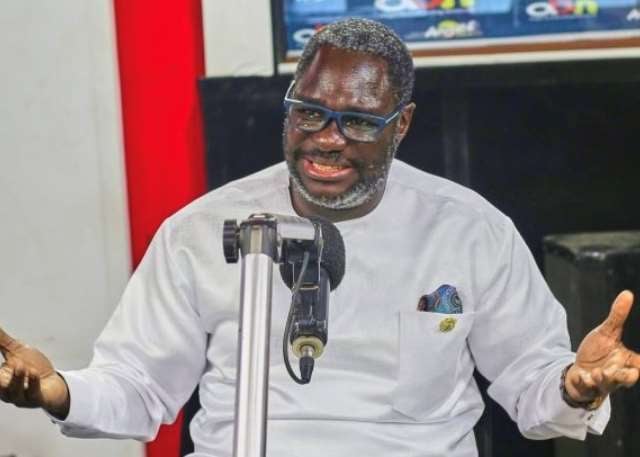The recent clash between Kennedy Agyapong, a prominent figure in the New Patriotic Party (NPP), and Kwame Baffoe Abronye, the Bono Regional Chairman of the NPP, has ignited a firestorm within the party and sparked discussions about leadership, unity, and respect within its ranks. The incident, which unfolded during an NPP Thank You Tour, highlighted long-simmering tensions and exposed deep-seated divisions within the party’s structure.
The confrontation began with Abronye seemingly directing veiled criticisms towards Agyapong, accusing him of actions detrimental to party unity. Agyapong, known for his outspoken nature, responded swiftly and sharply, questioning Abronye’s credibility and making remarks that were perceived as condescending and dismissive. The exchange escalated rapidly, with Agyapong issuing a stern warning to the party, emphasizing his own stature and influence within the NPP.
Dr. Palgrave Boakye-Danquah, a former government spokesperson and a recent addition to Agyapong’s team, interpreted the incident as a pivotal moment in the NPP’s trajectory. He characterized Agyapong’s rebuke of Abronye as a decisive step towards ending what he termed “destructive leadership” within the party. Boakye-Danquah viewed Agyapong’s actions as a challenge to divisive tactics and a call for greater unity and respect within the NPP, potentially signaling a shift in power dynamics and leadership styles.
The clash between Agyapong and Abronye underscores the challenges facing the NPP as it navigates internal conflicts and seeks to maintain a cohesive front. The incident has exposed fault lines within the party, raising concerns about the potential impact on its overall stability and effectiveness. The differing interpretations of the event further highlight the polarization within the NPP, with some viewing Agyapong’s actions as a necessary corrective measure while others express concern about the potential for further escalation and division.
The implications of this public confrontation extend beyond the immediate participants. The incident has sparked wider debate about the nature of leadership within the NPP, the role of regional leaders, and the importance of maintaining respectful dialogue even in the face of disagreement. The fallout from this clash could have a significant impact on the party’s internal dynamics and its ability to present a united front in future political endeavors. The incident also raises questions about the party’s mechanisms for resolving internal disputes and the effectiveness of its leadership in managing such conflicts.
The incident serves as a reminder of the delicate balance that political parties must strike between allowing for robust internal debate and maintaining a sense of unity and cohesion. The NPP now faces the challenge of addressing the underlying issues that led to this public confrontation and finding ways to bridge the divides that have been exposed. The party’s ability to effectively manage this internal conflict will likely play a crucial role in its future success and its ability to maintain public trust and confidence.














